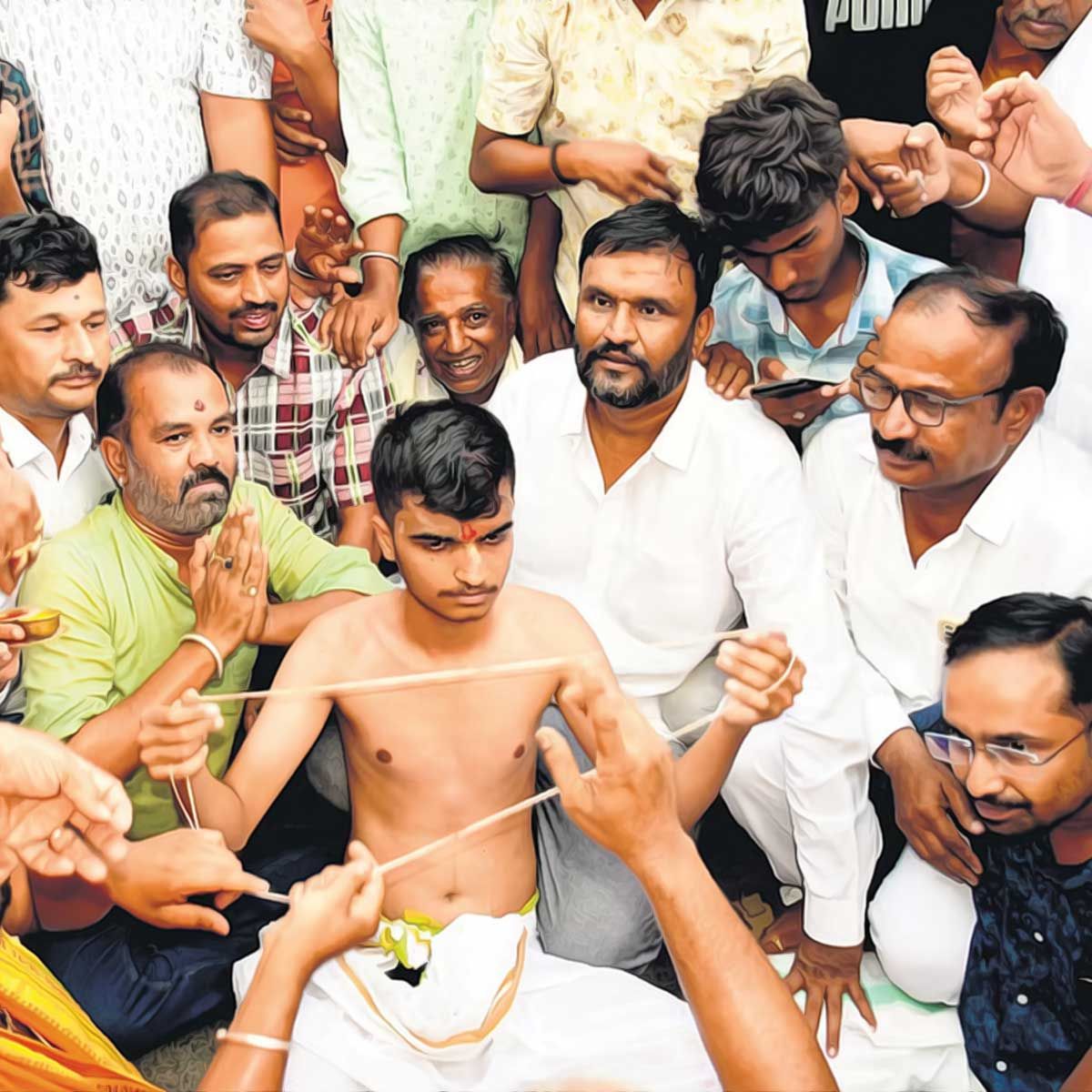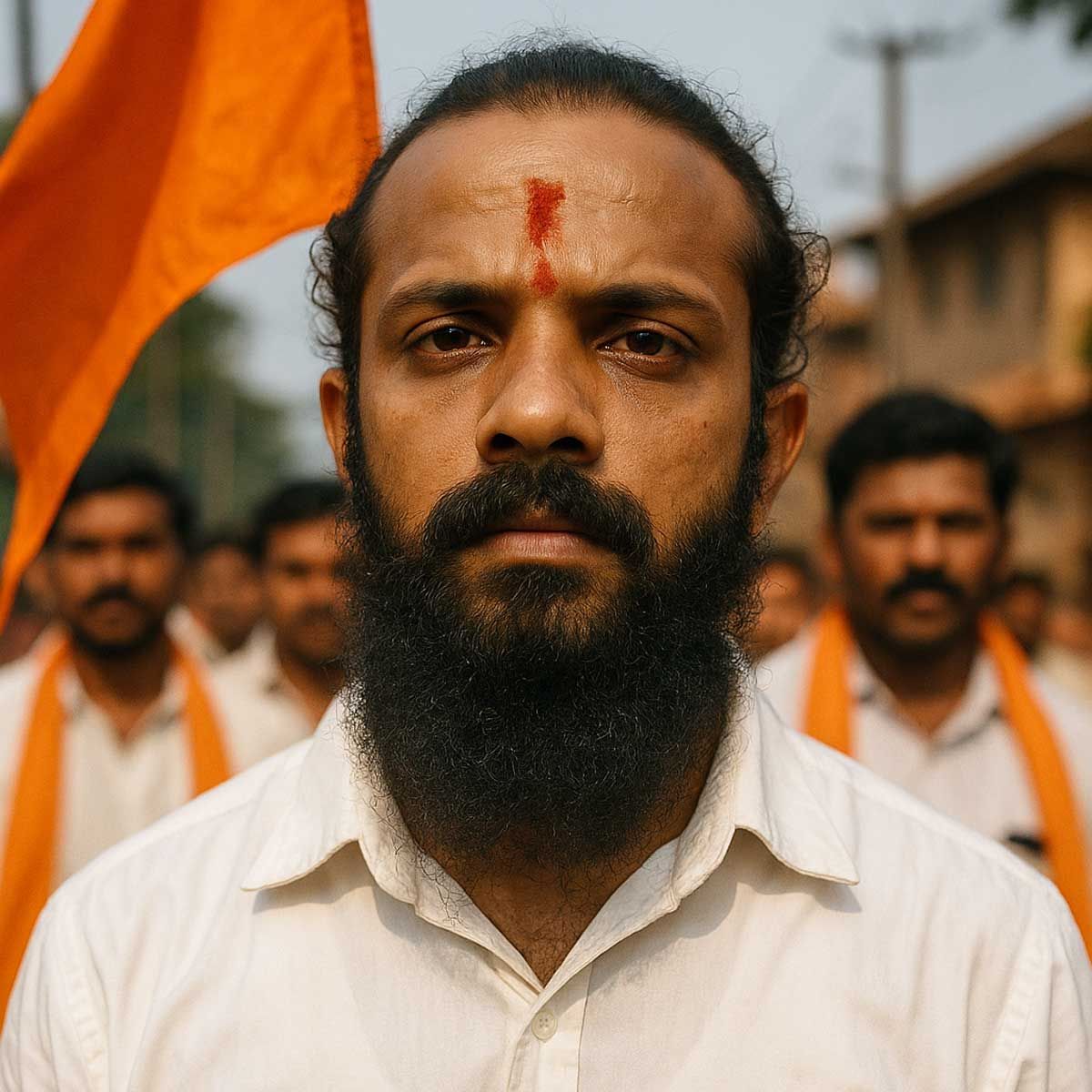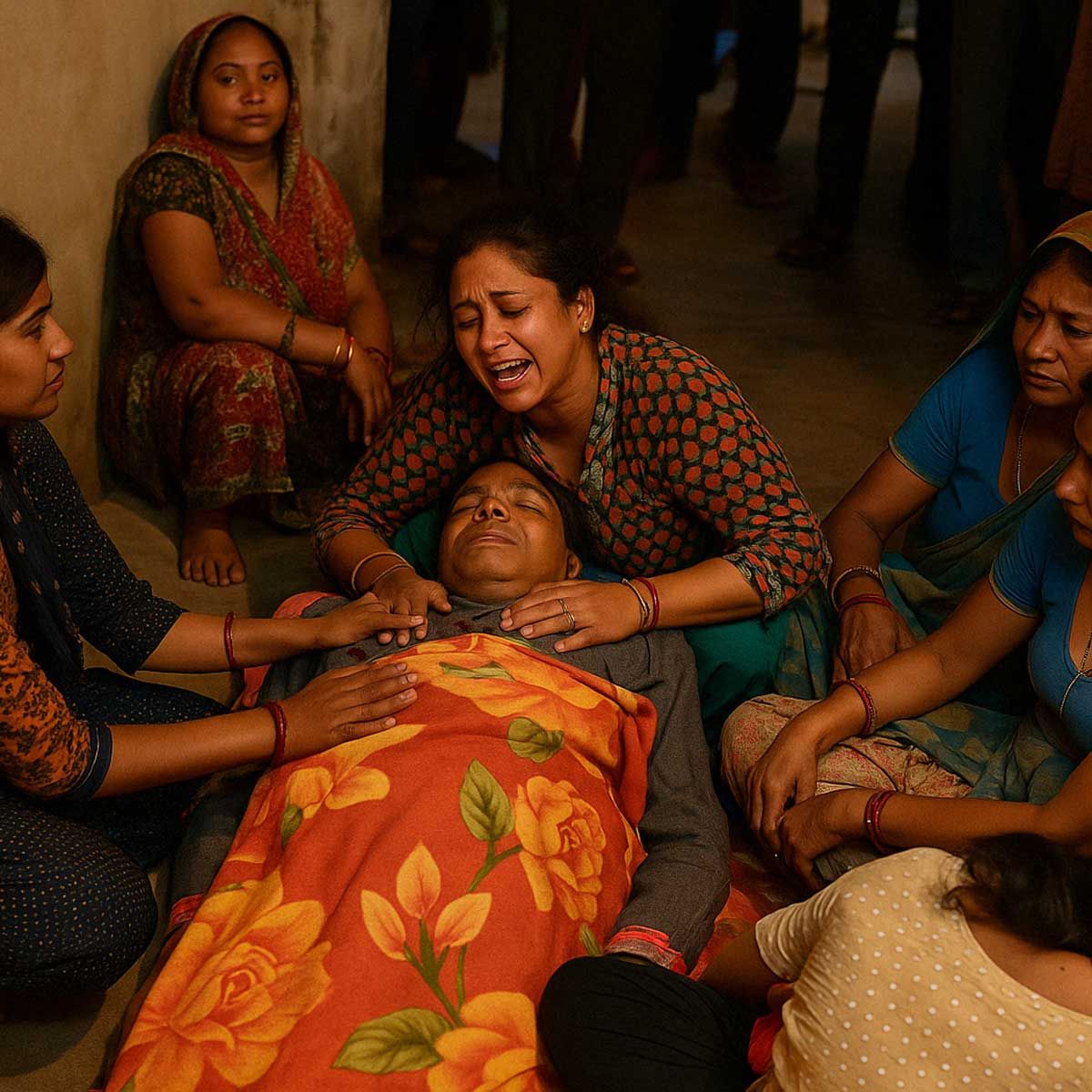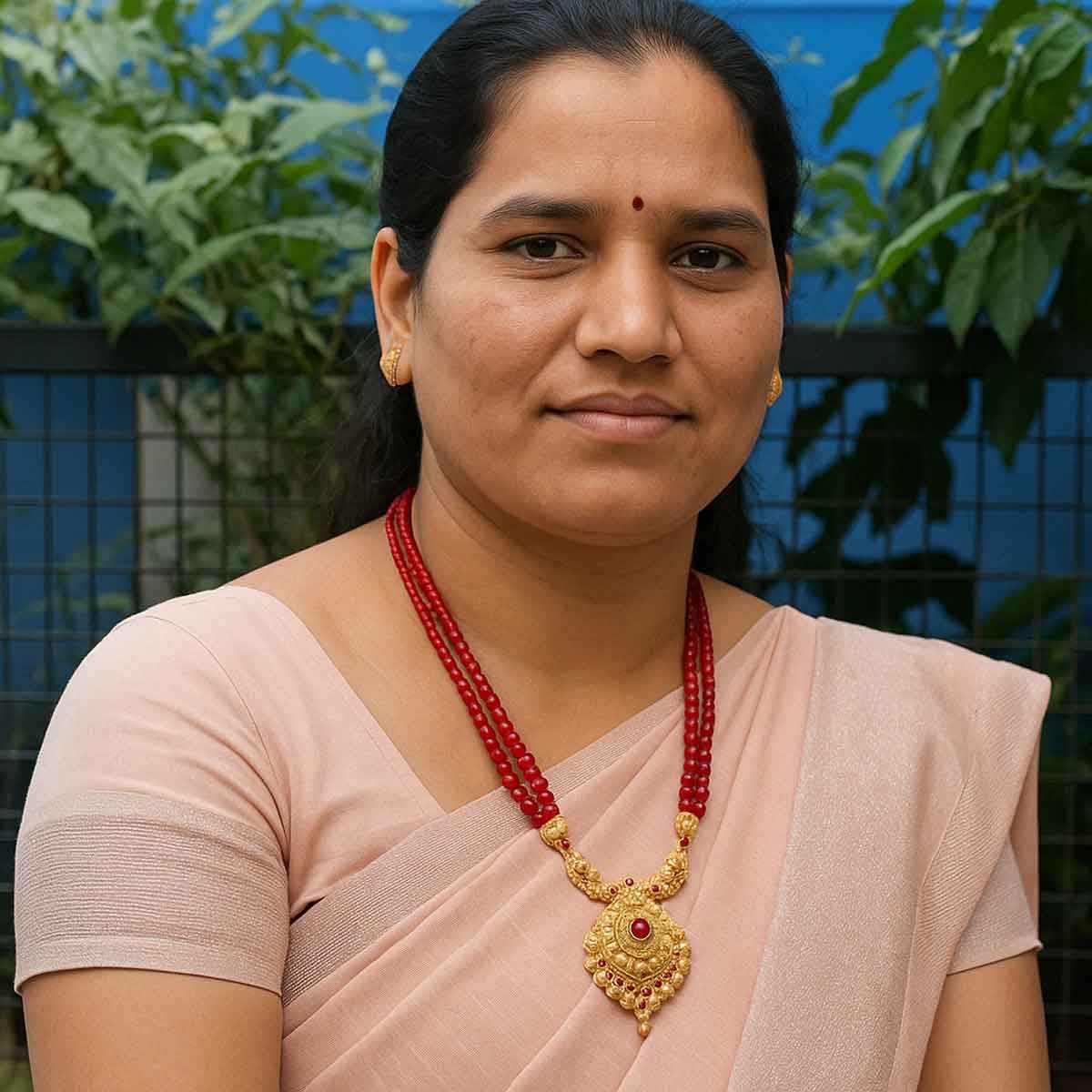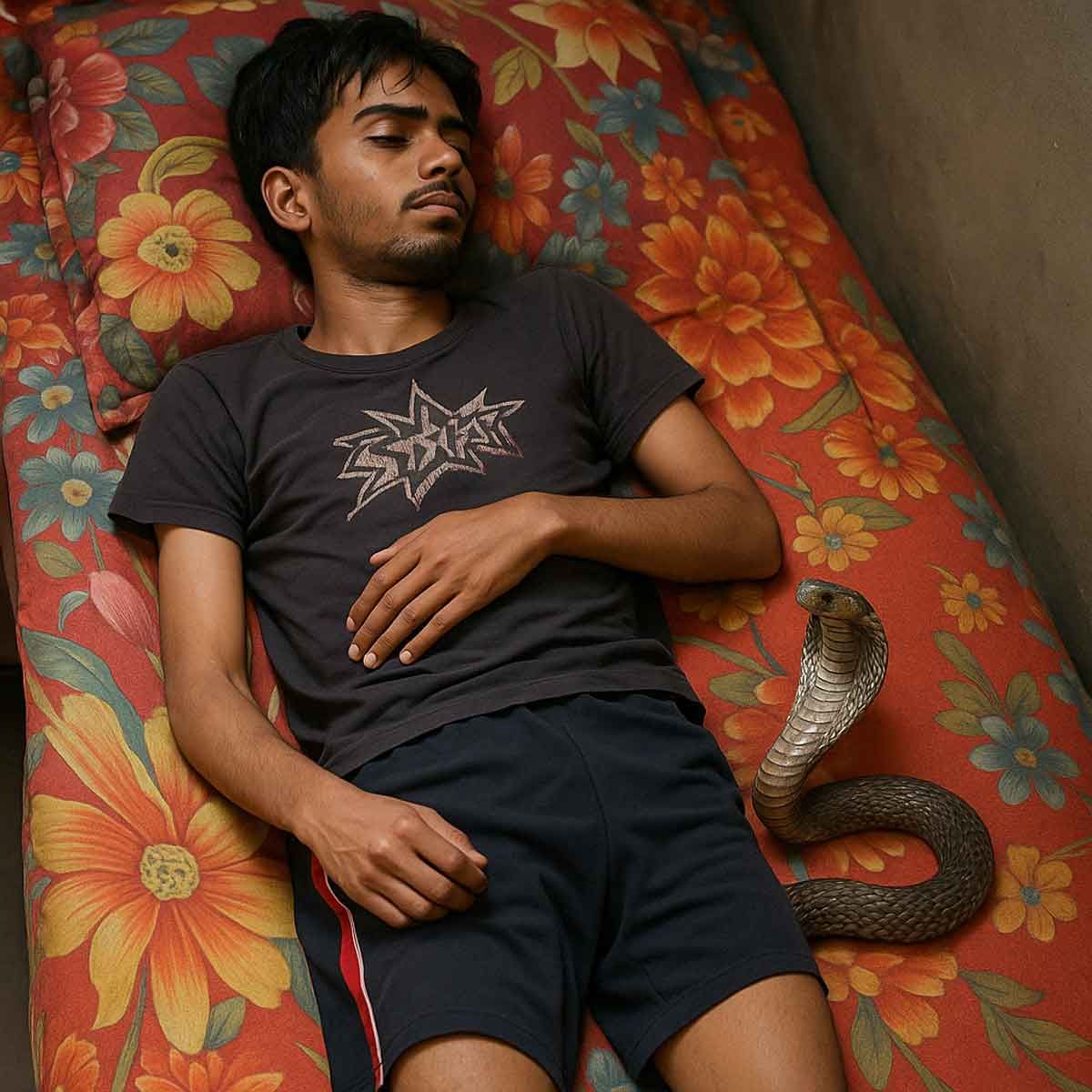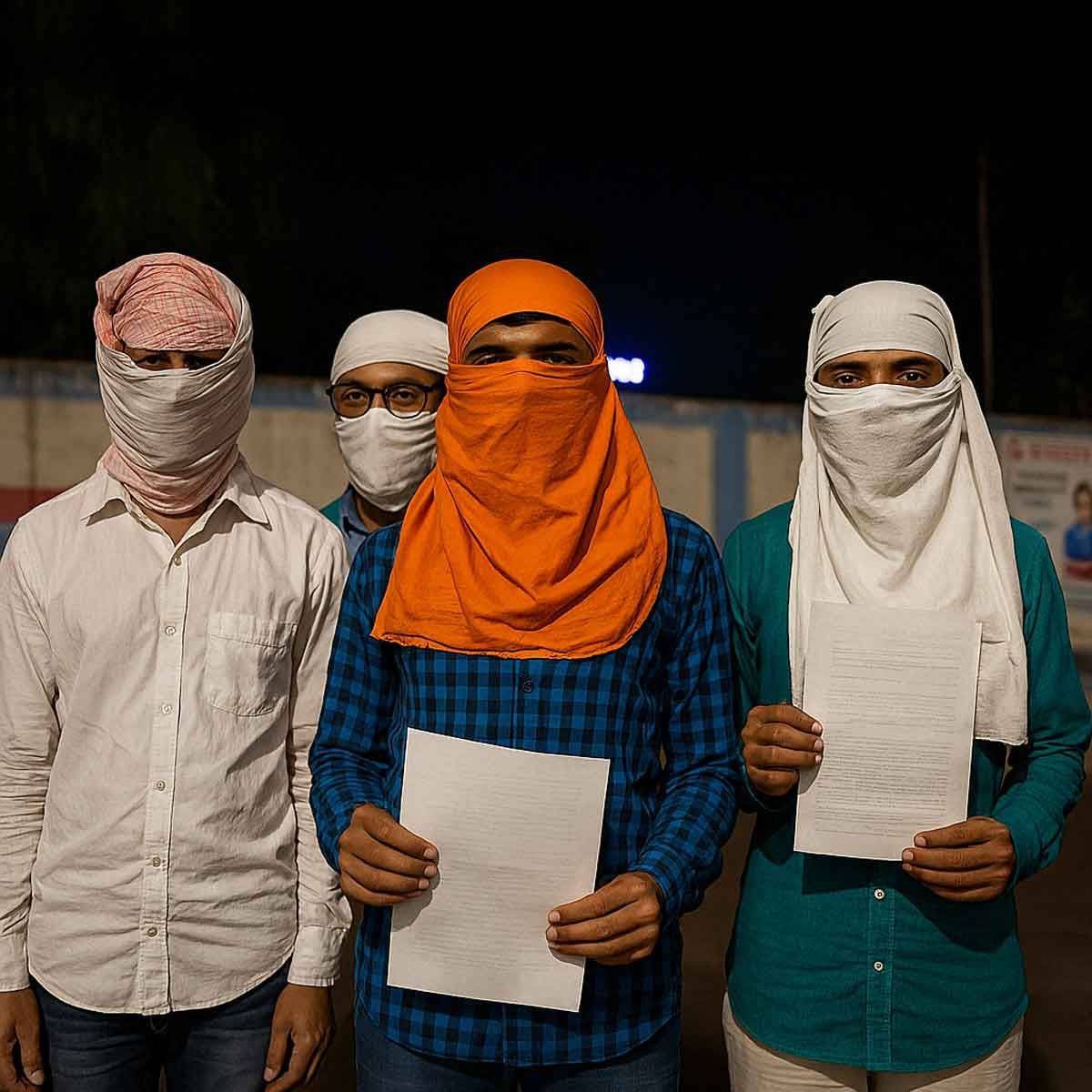More Coverage
Twitter Coverage
Satyaagrah
Written on
Satyaagrah
Written on
Satyaagrah
Written on
Satyaagrah
Written on
Satyaagrah
Written on
JOIN SATYAAGRAH SOCIAL MEDIA
"अधूरा न्याय": IPS Vandana Malik, a spirited 26-year-old from Haryana, died fighting PLA militants in a 1989 Manipur ambush, only for Thokchom Kunje, accused of her killing, to walk free in 2014 after 25 years as court found no proof tying him to that day
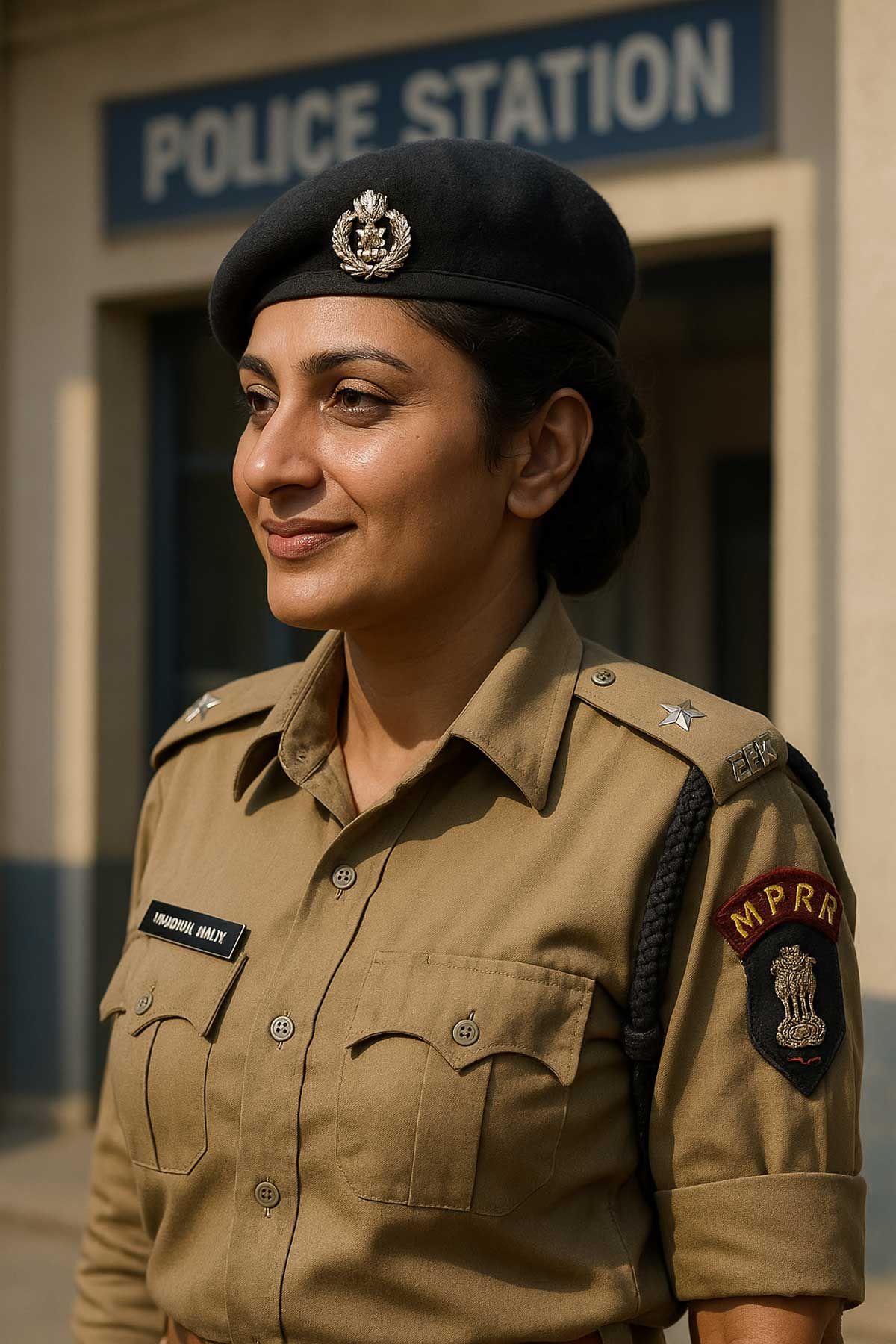
The story of Vandana Malik, a young and fearless woman who joined the Indian Police Service (IPS) in 1987, is one that inspires courage and dedication. At just 26 years old, this brave soul from Faridabad, Haryana, stepped into a world that was tough and unfamiliar, yet she embraced it with determination. After being allotted the Manipur cadre in the IPS, Vandana set out on an incredible journey. She left behind the comforts of her hometown and, after completing her training at the Police Academy in Hyderabad, traveled nearly 3000 kilometers to reach Imphal, the capital of Manipur. There, she began her field training and took up her duties with a sense of purpose that few could match. For Vandana, this wasn’t just a job—it was a calling to serve her country, no matter where it took her.
|
Before she wore the khaki uniform of the IPS, Vandana had already made a mark in the academic world. She served as a faculty member at Punjab University, sharing her knowledge and inspiring students. But her heart was set on something bigger. She decided to take the Civil Services Exam (CSE), a challenging test that opens doors to some of the most prestigious services in India. When she cleared it and entered the IPS in 1987, it was a moment of pride—but not everyone in her family shared her excitement. Back in 1986, women in the police force, especially in the IPS, were a rare sight. The khaki uniform was mostly seen on men, and the idea of a young woman stepping into such a demanding role wasn’t something her family had imagined. Still, Vandana’s resolve was unshakable. She saw beyond the doubts and chose a path that would let her serve the nation in a way that truly mattered.
In Imphal, Vandana took charge as the Station House Officer (SHO) at Lamshang Police Station. It was a big responsibility, overseeing law and order in an area that wasn’t always calm. On April 8, 1989, she led her team on a routine yet important task. They climbed into a sky-blue police jeep and set off to check on High School examination centers for the matriculation exams under her jurisdiction. It was a day like any other, with Vandana ensuring everything ran smoothly so students could focus on their future. The jeep rumbled along the roads of Imphal, carrying her and her team through the hilly terrain of Manipur, a state known for its beauty but also its challenges.
The inspection went well, and by afternoon, the team was on their way back to the police station. Vandana sat in the front seat, dressed proudly in her khaki uniform, while the police driver pressed down on the accelerator of the old jeep. The clock showed 3:00 pm, and the team hadn’t even had time for lunch yet. A pleasant breeze flowed through the mountain valley, offering a moment of calm as they drove. Little did they know, danger was waiting just ahead. As they neared the approach road of Western College, Konthoujam, about 2 kilometers from the police station, a group of militants from the Revolutionary People’s Front (PLA) lay in ambush, ready to strike.
Suddenly, bullets tore through the air. The militants opened fire on the jeep, targeting Vandana and her team. Despite the chaos, Vandana didn’t hesitate. Sitting in the front, she grabbed her weapon and fired back at the attackers, showing the bravery that defined her. But the situation spiraled out of control. The driver, caught in the hail of bullets, lost his grip on the steering wheel. Amid the firefight, a bullet struck Vandana in the head. Blood stained her uniform as she slumped in her seat, her life slipping away on the spot. Four other policemen in the team were also hit, suffering serious injuries. The militants, seizing their chance, rushed forward and snatched the team’s weapons—a sten gun, a revolver, two rifles, and ammunition—leaving the police party defenseless and reeling from the attack.
|
Vandana’s courage wasn’t just seen that fateful day; it shone through during her time at the Police Academy in Hyderabad. She trained alongside her peers with grit and enthusiasm, never asking for special treatment despite being a woman in a male-dominated field. She ran cross-country races, pounding the ground with every step, and jogged with a passion that inspired others. Beyond the physical training, she took the lead in cultural performances and dramatics, bringing her team together with her energy and charm. Her time at the academy shaped her into a leader who was ready for anything—or so she thought.
Being posted in Manipur, thousands of miles from her home in Haryana, wasn’t easy. When her friends heard about her posting, they couldn’t help but feel it was unfair. “Being posted in Manipur for a woman from Haryana was unfair,” they told her, worried about the distance and the challenges she’d face. But Vandana’s response was simple and powerful: “Why should IPS be called an All India Service if everyone gets their home state?” For her, the IPS wasn’t just about staying close to home—it was about serving wherever the nation needed her. She packed her bags and headed to Manipur, ready to protect its people and uphold the law, no matter how far it took her from her loved ones.
After the tragic ambush, the investigation began. At first, no one knew who was behind the attack. The police filed an FIR at Lamphel Police Station against unknown persons, unsure of where to point the finger. But the case was too big for the local force alone. The Manipur state government called in the Central Bureau of Investigation (CBI), trusting them to dig deeper. After months of work, the CBI uncovered the truth. They identified the killers as five cadres of the Revolutionary People’s Front (PLA), a militant group active in the region. With evidence in hand, the CBI filed a charge-sheet against them, seeking justice for Vandana and her team.
Vandana’s body was brought back to Faridabad, draped in the tricolors of India—a symbol of her sacrifice. Her family, though heartbroken, stood tall as she was cremated with full honors, the kind reserved for heroes who give everything for their country. The crackle of the funeral pyre marked the end of a life cut short, but her legacy lived on. In Manipur, her name became a reminder of the risks police officers face every day. Across India, she became an inspiration for women dreaming of wearing the khaki, proving that courage knows no gender.
|
Jai Hind!!!
PLA Man Cleared of Charges in IPS Officer Killing Case
Imphal, March 23, 2014: In a bitter twist, a court in Imphal set free a man accused of a heinous crime that shocked Manipur 25 years earlier. A cadre of the People’s Liberation Army (PLA), Thokchom Kunje, was cleared of charges tied to the 1989 killing of IPS officer Vandana Malik. The irony stung—a man once blamed for her death walked away, while her sacrifice remained a painful memory. The court’s ruling was clear: “Accordingly, the Court has asked for the release of the PLA cadre if no other cases are pending against him,” leaving Kunje’s fate hanging on whether other charges lingered.
The tragedy dated back to April 8, 1989, when Vandana, a 26-year-old officer, lost her life. “IPS officer Miss Vandana Malik (IPS) was killed in an ambush laid by some suspected PLA cadres at Konthoujam Lamkhai in Imphal West district on April 8, 1989,” the records stated. She was the officer-in-charge at Lamphel Police Station, leading her team to secure an examination center for the High School Leaving Certificate exams. “On that fateful day, Miss Vandana Malik, who was then the officer-in-charge (OC) of Lamphel Police Station (now under Imphal West district) and her team were heading to an examination centre of the High School Leaving Certificate (HSLC) on security duty,” the account recalled.
Around 3:00 pm, disaster struck. “Around 3 pm, a group of suspected PLA cadres laid an ambush killing Miss Vandana Malik on the spot and injured four police constables critically,” the report confirmed. Bullets rained down, ending Vandana’s life and wounding four others. The attackers fled with weapons: “One sten-gun, one .38 revolver, two rifles and some ammunitions were taken away by the suspected militants after the incident,” a grim detail of the loss.
The police acted fast. “Based on the intelligence inputs, a case was taken up against five cadres of PLA,” the authorities noted. The case was too big for local hands, so “Owing to the gravity of the case and the seriousness of the incident, the Government of Manipur later transferred the case to the CBI.” The CBI named five suspects: “The PLA cadres were N Saratchandra, Thokchom Kunje alias Tolen, M Inaoba alias John, L Tombi alias Surendro and Ch Subhash alias Dolen.” But time scattered them—some died, others stayed out of reach. “Of the five cadres, some of them had passed away while others had not been arrested,” the records showed.
Kunje’s turn came years later. “On September 15, 2011, Thokchom Kunje was arrested by the police from a place in Assam,” the file stated. He was locked up in Sajiwa Jail, Imphal, where “Ever since, he has been languishing in Sajiwa Jail, Imphal.” The trial was intense, with “In the case proceedings, there were 50 witnesses and 107 documents involved.” Advocate A Ibomcha fought for the government, while Khaidem Mani defended Kunje.
In the end, the court found nothing to pin on him. “The court concluded that there was no evidence to support that Thokchom Kunje was involved in the IPS officer killing incident or the April 8, 1989 ambush case,” the verdict read. Judge A Guneshwar Sharma sealed it: “A Guneshwar Sharma, Designated Judge, Manipur East pronounced that Thokchom Kunje was innocent in connection with the said incident and directed for the release of him if no other cases are against him.” On March 23, 2014, Kunje walked free, the weight of 25 years lifted—not by proof of innocence, but by the absence of guilt.
The decision left a bitter taste. The Hindu, March 25, 2014, reported the acquittal, noting the lack of evidence that let Kunje slip through. For Vandana’s memory, it was a stark reminder: justice, sometimes, could be as elusive as the truth itself.
 |
 Support Us
Support Us
Satyagraha was born from the heart of our land, with an undying aim to unveil the true essence of Bharat. It seeks to illuminate the hidden tales of our valiant freedom fighters and the rich chronicles that haven't yet sung their complete melody in the mainstream.
While platforms like NDTV and 'The Wire' effortlessly garner funds under the banner of safeguarding democracy, we at Satyagraha walk a different path. Our strength and resonance come from you. In this journey to weave a stronger Bharat, every little contribution amplifies our voice. Let's come together, contribute as you can, and champion the true spirit of our nation.
 |  |  |
| ICICI Bank of Satyaagrah | Razorpay Bank of Satyaagrah | PayPal Bank of Satyaagrah - For International Payments |
If all above doesn't work, then try the LINK below:
Please share the article on other platforms
DISCLAIMER: The author is solely responsible for the views expressed in this article. The author carries the responsibility for citing and/or licensing of images utilized within the text. The website also frequently uses non-commercial images for representational purposes only in line with the article. We are not responsible for the authenticity of such images. If some images have a copyright issue, we request the person/entity to contact us at This email address is being protected from spambots. You need JavaScript enabled to view it. and we will take the necessary actions to resolve the issue.
Related Articles
- Explore the mystery of 'Badluram ka Badan,' the haunting anthem of the Assam Regiment, concealing the tale of Badluram, it echoes resilience, sustaining camaraderie even beneath the earth; join the global symphony of sacrifice transcending borders
- "Ram Ashish Yadav": A true hero whose bravery shone in the final act of valor on duty, clearing threats as part of a road opening party in Bijapur, Chhattisgarh, he ensured comrades' safety before succumbing to an IED blast, a true martyr for Mother India
- Honoring Capt Kanika Bhardwaj, a gallant Indian Army officer, whose legacy in the Corps of EME resonates with courage and commitment. Her remarkable life, from aspiring engineer to a revered hero, leaves an indelible mark of inspiration in our hearts
- Col. Manpreet Singh, killed in action in Jammu & Kashmir, previously refused a peace posting to courageously lead his unit that played a pivotal role in the elimination of Hizbul Mujahideen terrorist Burhan Wani, thus cementing his legacy as a true hero
- “This will remain the land of the free so long as it is the home of the brave”: 21-years-old Rifleman Jaswant Singh Rawat martyred in the Indo-China war, held his post for 72 hours and single-handedly killed 300 Chinese soldiers to save Arunachal Pradesh
- "कर चले, हम फ़िदा": Just two months before his wedding, Naik Mukesh Singh Manhas of Kamila village gave his life in an IED blast on Feb 11, 2025—choosing duty over vows, leaving behind tears, pride, and a legacy that echoes through generations
- "हक़ीक़त": Remembering Haqiqat Rai, the 13-year-old Hindu boy, the first victim of blasphemy laws, tortured and stoned to death on Basant Panchami in 1734 under Mughal rule for resisting insults to Hindu gods, refusing to convert, and choosing martyrdom
- In the fiery heart of battle, Kent, a 6-year-old heroic army labrador, embraced her final duty with a fierce love that brings tears to our eyes, she laid down her life in an ultimate act of protection for her handler; a tender guardian, a true Indian hero
- "गर जंग लाज़मी है": Devastating news emerges as Colonel Vaibhav Anil Kale, a former IA officer serving with the UN, tragically loses his life in Gaza, leaving behind his grieving wife & two teenage children, his sacrifice resonates deeply amidst conflict
- Subedar Kuldeep Chand, 46, of Himachal’s Kohalwin village, martyred foiling Pakistan’s infiltration in Jammu’s Akhnoor along the LoC, leaves behind wife Santosh, kids Aryan and Diksha, while his father Rattan, a 9 Punjab veteran, mourns a hero’s sacrifice
- "Lion's Spirit Unleashed": Outnumbered and wounded, Naik Jadunath Singh faced three fierce attacks by Pak Army in 1948's Battle of Taindhar; with indomitable spirit, he turned looming defeat into victory, saving Naushera and making the ultimate sacrifice















